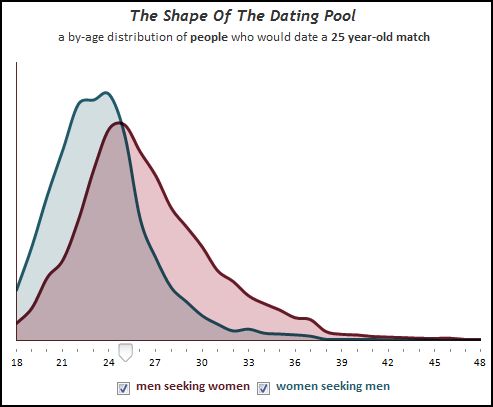Is Age Just A Number? Exploring The Social And Biological Realities Of Aging

Table of Contents
The Biological Realities of Aging
Aging is a biological process characterized by progressive changes in our bodies. While the saying "age is just a number" might offer a comforting sentiment, it cannot negate the undeniable physiological shifts that occur over time.
Physiological Changes
As we age, our bodies undergo various changes at the cellular and organ system levels.
- Cellular senescence: This process involves the gradual deterioration of cells' ability to divide and function optimally. This contributes to the overall decline in bodily functions and increased susceptibility to age-related diseases.
- Organ system decline: Various organ systems, including the cardiovascular, respiratory, and immune systems, experience age-related decline. This can lead to reduced efficiency and increased risk of chronic illnesses. For instance, the heart may become less efficient at pumping blood, lungs might lose some capacity, and the immune system becomes less effective at fighting off infections.
- Increased susceptibility to disease: Aging is a significant risk factor for numerous chronic illnesses, including heart disease, stroke, type 2 diabetes, certain cancers, and Alzheimer's disease. These age-related diseases significantly impact the quality of life for many older adults. Understanding these geriatric health issues is crucial for effective preventative care and treatment.
Genetic Factors and Aging
While environmental factors play a crucial role, genetics also significantly influence the aging process, determining both lifespan and healthspan (the duration of healthy life).
- Genetic predispositions: Certain genes increase the risk of developing age-related diseases. For example, some genetic variations are linked to an increased risk of Alzheimer's disease or certain types of cancer.
- Telomere length and aging: Telomeres, protective caps on chromosomes, shorten with each cell division. Shorter telomeres are associated with cellular aging and increased risk of age-related diseases.
- Epigenetics and aging: Epigenetics refers to changes in gene expression that are not caused by alterations in the DNA sequence itself. Environmental factors, such as diet and lifestyle, can influence epigenetic modifications, impacting the aging process and longevity. Research into epigenetics offers promising avenues for interventions promoting healthy aging and extending healthspan.
The Social Construction of Aging
While the biological aspects of aging are undeniable, how we experience aging is significantly shaped by societal factors. The question, "Is Age Just a Number?" takes on a different meaning when we consider the social context.
Societal Attitudes Towards Aging
Societal attitudes toward aging vary considerably across cultures and time periods.
- Ageism and discrimination: Ageism, prejudice or discrimination based on age, is prevalent in various societal contexts. Older adults may face discrimination in employment, healthcare, and social interactions. This age discrimination can significantly impact their well-being and quality of life.
- Cultural variations in aging: Different cultures have vastly different perspectives on aging and older adults. Some cultures deeply respect and value the wisdom and experience of their elders, while others may marginalize them. Understanding these cultural variations is crucial for developing sensitive and culturally appropriate approaches to elder care.
- Media portrayals of aging: Media often portrays aging negatively, reinforcing stereotypes and contributing to ageist attitudes. Challenging these negative stereotypes and promoting positive representations of aging are essential for fostering a more inclusive and respectful society. Positive portrayals can help combat ageism and improve the social acceptance of senior citizens.
The Impact of Social Factors on Aging
Social factors profoundly influence the aging process and overall well-being.
- Socioeconomic status and health: Socioeconomic status is strongly correlated with health outcomes in older adults. Individuals with lower socioeconomic status often have poorer health outcomes due to limited access to healthcare, healthy food, and safe housing.
- Social support networks and aging: Strong social support networks are crucial for maintaining physical and mental health in older adults. Social connections provide emotional support, reduce stress, and promote a sense of belonging.
- Access to healthcare and resources: Access to quality healthcare and other essential resources significantly influences the quality of life for older adults. Ensuring equitable access to these resources is crucial for promoting healthy aging within the aging population. Improving access contributes to aging gracefully and positively.
Is Age Just a Number? A Balanced Perspective
In conclusion, the question, "Is age just a number?" is not easily answered. While the biological processes of aging are inevitable, the social aspects are malleable. We have seen that while physiological changes are a fundamental reality, the social construction of aging profoundly shapes our experiences. Fostering positive attitudes toward aging, promoting healthy lifestyles through preventative measures and interventions targeting age-related diseases, and ensuring equitable access to healthcare and social support are crucial for successful aging and improving the quality of life for older adults. We must actively combat ageism and work towards a society that values and celebrates the contributions of older individuals. Embracing healthy aging is not just about living longer, but about living well throughout our lives. Let's continue the conversation, conduct further research on this important topic, and actively challenge ageist attitudes, working toward a future where everyone can experience the fullness of life at every age. The question, "Is age just a number?" should ultimately lead us to a deeper understanding of how to promote health, well-being, and dignity across the lifespan.

Featured Posts
-
 Hl Tshkl Arqam Jwanka Thdyda Hqyqya Llnsr
May 01, 2025
Hl Tshkl Arqam Jwanka Thdyda Hqyqya Llnsr
May 01, 2025 -
 La Rental Market Under Scrutiny Following Fire And Price Gouging Claims
May 01, 2025
La Rental Market Under Scrutiny Following Fire And Price Gouging Claims
May 01, 2025 -
 Unexpected Dragons Den Retort Peter Joness Response Stuns Fans
May 01, 2025
Unexpected Dragons Den Retort Peter Joness Response Stuns Fans
May 01, 2025 -
 Thong Tin Ve Doi Vo Dich Giai Bong Da Thanh Nien Hue Lan Thu Vii
May 01, 2025
Thong Tin Ve Doi Vo Dich Giai Bong Da Thanh Nien Hue Lan Thu Vii
May 01, 2025 -
 Islensk Fotboltadagskra T Hrir Leikir I Bestu Deildinni
May 01, 2025
Islensk Fotboltadagskra T Hrir Leikir I Bestu Deildinni
May 01, 2025
